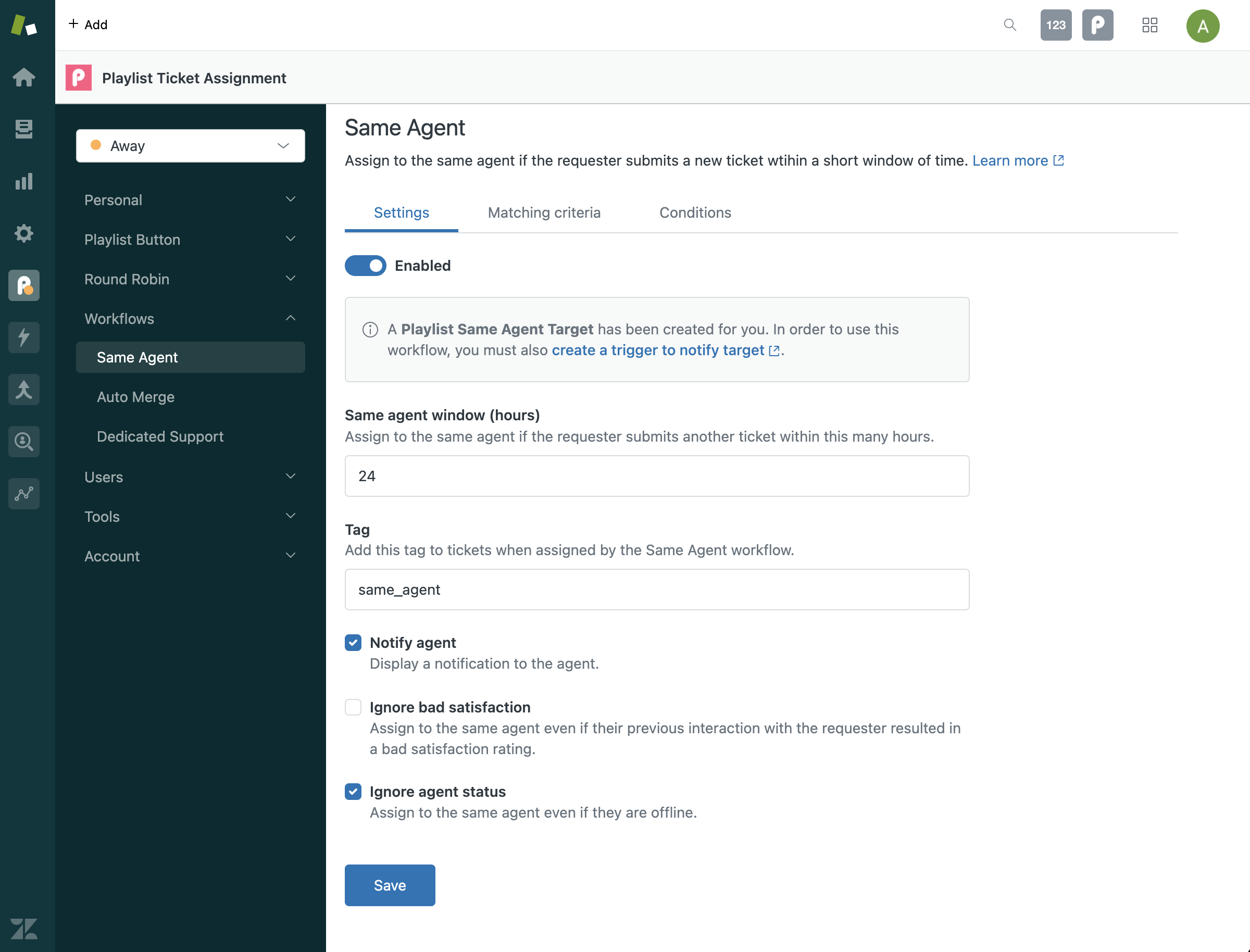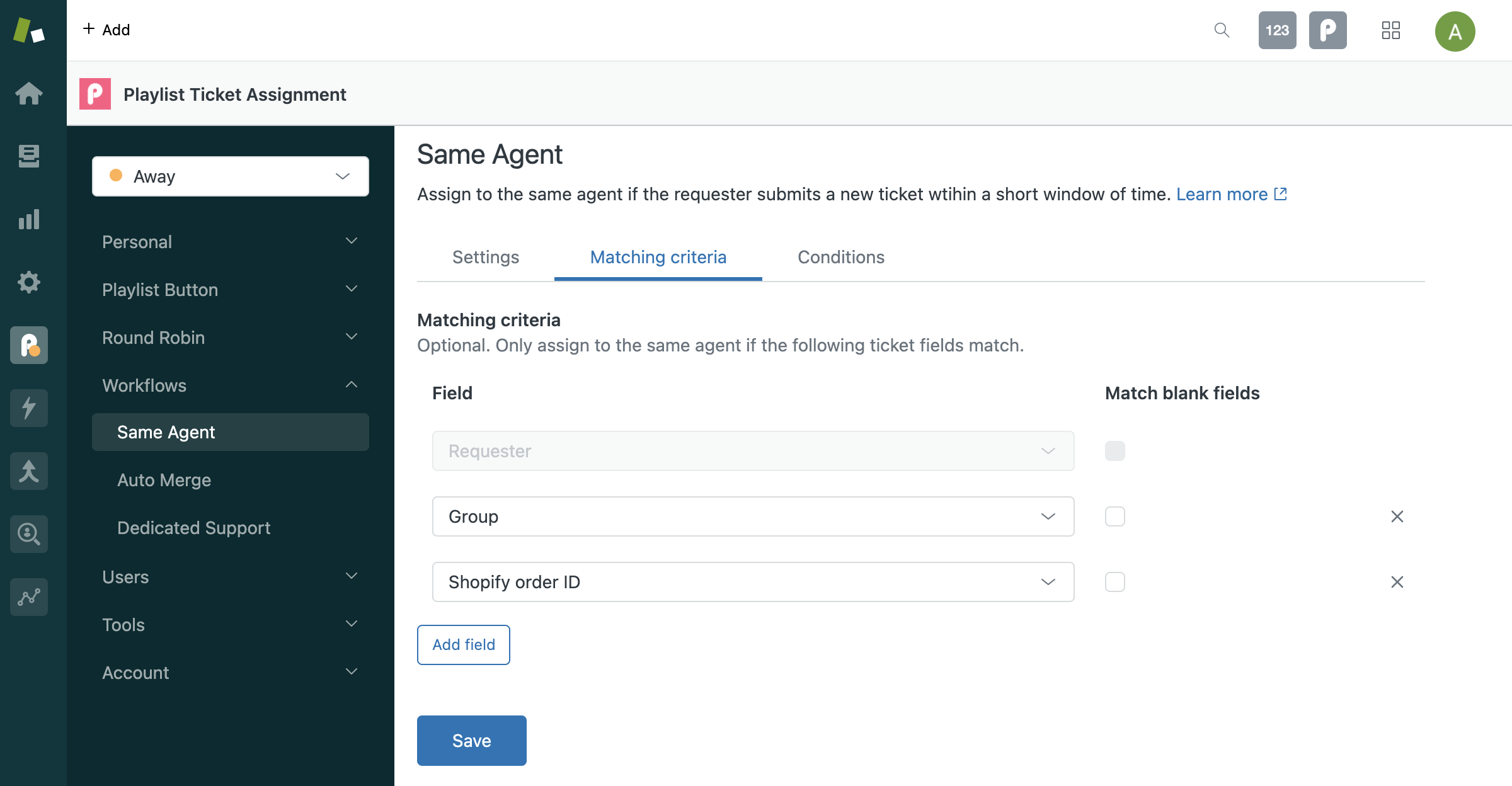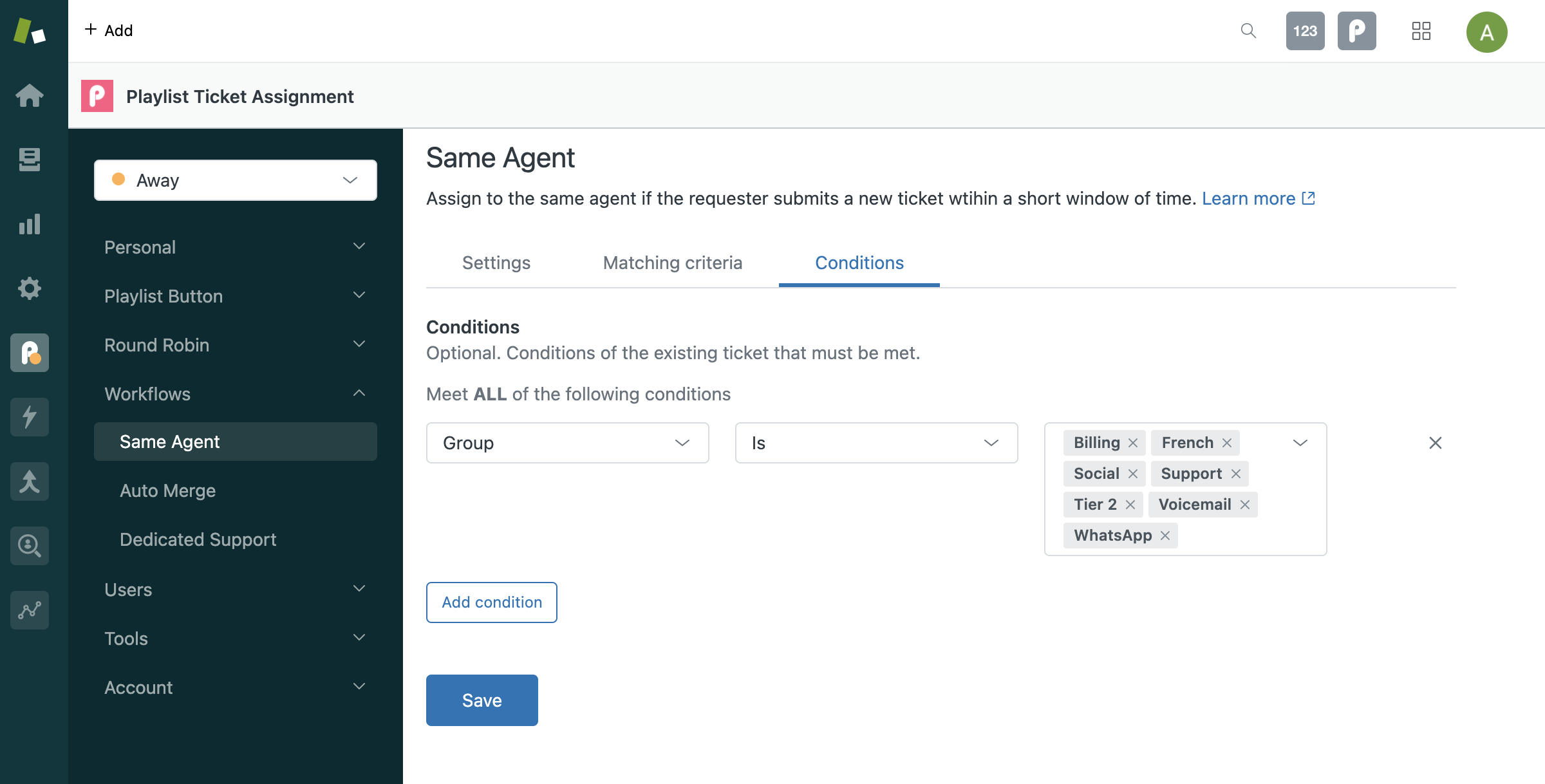For a better customer experience, you may want to implement Same Agent to avoid passing customers around to different agents too often. This workflow will automatically assign tickets to the same agent if the same requester submits a new ticket within a specified window of time.
How it works
Same Agent relies on a Zendesk trigger that you create to notify a webhook (our service) when a new ticket is created. Our service will determine if the new ticket should be assigned to the same agent, and, if conditions are met, the assignment happens immediately. This feature works independently of Round Robin and Playlist Button.
- Generate Playlist API key
- Enable Same Agent
- Settings
- Matching criteria
- Conditions
- Create trigger to notify active webhook
Generate Playlist API key
If you haven't already done so, make sure you generate your Playlist API key first.
Enable Same Agent
Go to Playlist Setup > Workflows > Same Agent. Click on Enabled.
When you enable Same Agent for the first time, the Playlist Same Agent Webhook is automatically created for you. This webhook will be used in a trigger that you create.

Settings
Once enabled, adjust settings to your team's preferences.

Same agent window (hours)
This is the interaction window (in hours) between the agent and the requester. It's the difference between the current time and the requested date of the oldest, consecutive ticket between requester and the agent. The maximum value allowed is 8760 hours (1 year).
If the requester submits a new ticket...
- within the same agent window, it will be assigned to the same agent.
- outside of the window, it will be left unassigned (i.e. to be picked up by Round Robin or the Playlist Button).
Example
In the below scenario, the current time is July 4, 2020 9:00 am, and the requester has been working with Bob on other tickets since July 1, 2020 9:00 am. The difference between the current time and the requested date of the oldest, consecutive ticket (ticket #1) with Bob is 72 hours.
If the window is set to 72 hours (or greater), Bob would automatically receive ticket #3. If the window was set to 71 hours, Bob would not receive ticket #3.
|
Ticket ID |
Assignee |
Requested date |
|
3 (newest ticket) |
Bob |
July 4, 2020 09:00 am (current time) |
|
2 |
Bob |
July 2, 2020 2:00 pm |
|
1 |
Bob |
July 1, 2020 9:00 am |
Tag
Optionally, tag tickets that are successfully assigned by the Same Agent workflow. The tag may be useful for reporting, or you may want to leverage it for triggers and automations.
Notify agent
Enabled by default. Display a notification to the agent when the ticket is assigned to them via the Same Agent workflow. It's the same notification you'd expect from the Playlist Button or Round Robin for ticket assignment.
Ignore bad satisfaction
Disabled by default. If Ignore Bad Satisfaction is enabled, the workflow will assign new tickets to the agent, regardless of receiving a bad satisfaction rating.
Ignore agent status
Disabled by default. Enable this option to assign tickets to the agent even if they are offline (i.e. set to a busy status or Invisible).
Matching criteria
Optionally, configure matching criteria so that tickets are only assigned if certain fields match between the new and existing ticket.

Conditions
You can also add conditions to restrict the workflow to only existing tickets with specific ticket statuses and/or groups.

Create trigger to notify active webhook
Create a trigger to notify the Playlist Same Agent Webhook. This will send a message to our server whenever a new ticket is created. If the new ticket was submitted within the Same agent window (hours), our service will automatically assign it to the same agent who last interacted with the requester.
Trigger name: Playlist - Assign to same agent
Conditions (Meet ALL):
- Ticket > Is > Created
- Assignee > Is > -
- Notify active webhook > Playlist Same Agent Webhook
Avoiding trigger loops
To avoid trigger loops, please ensure that you only notify the webhook once within the lifecycle of a ticket. Using the Ticket > Is > Created condition in your trigger (i.e. only firing the trigger when a ticket is created) is the easiest way to prevent trigger loops.
Limitations
- Tickets that are closed or already assigned to another agent will be ignored
- A ticket will only be assigned by the Same Agent workflow once